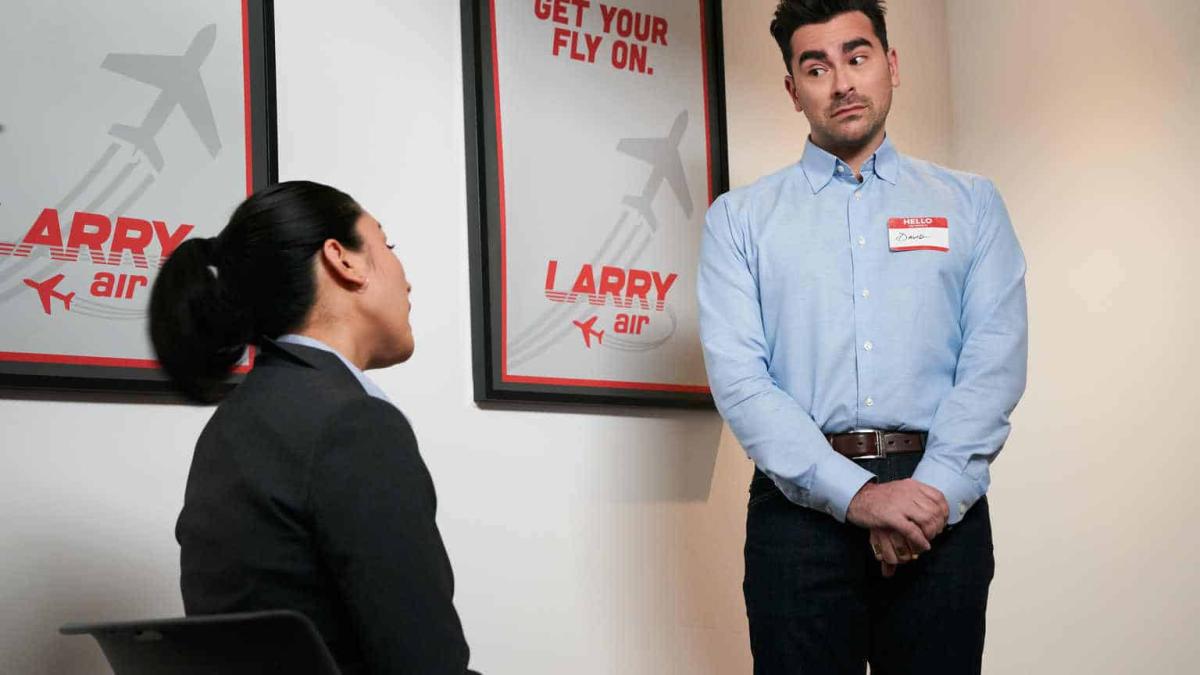
So, you’ve landed a job interview! Congratulations, mate. It’s an exciting — albeit scary — time, but it’s worth celebrating regardless. Like us, we’re sure the first thing you did after reading the email and giving a little excited squeal, was jump on Google. Among the obvious questions like “what should I wear to a job interview?” and “how early should I show up for a job interview?”, there’s also the matter of not messing it up once you’re actually in the door.
To answer the illusive question of how to nail a job interview, we first wanted to understand exactly what you should avoid doing. You know, if you actually want to land the gig without putting your foot in your mouth. To get the scoop, we tapped two hiring experts who’ve collectively seen every possible interview faux pas. Keep on reading to find out everything you should avoid doing in your next job interview.
Rhiahne Ralph, Head of New Partnerships at Make-A-Wish Australia

What is the worst thing people can do in a job interview?
Not doing your homework! If you show up for the job interview and you haven’t taken the time to understand the core aspects of the job and the company before the interview, you will immediately start sending all the wrong signals. Not doing your homework could cause the interviewer to question your seriousness as a candidate.
It’s great to seek out more details and insights during the interview (and you should always do this), but you can’t just show up and ask a question like, “What is the job?” or “What does the company do?” and think that this isn’t one of the worst things you can do in an interview. There are so many different ways right at our fingertips to gather information about the job or the company, don’t make the mistake of leaving the interviewer with any impression that you didn’t do your homework.
What’s the most common mistake people make in a job interview?
Not asking any questions at the end of the interview.
Not only is an interview the opportunity for a company to see if you are the right fit for a role, it is the chance you have to see if the company is also right for you. In addition to this, asking questions shows the interviewer what you want to know and how you think, and is one of the easiest ways you can get a leg up on the competition. Always ask at least three questions but have at least five to eight prepared, in case some are covered during the interview.
Some of the best questions you can ask are:
1. What qualities make for a successful team member here? Apart from core competencies, you can also address and give examples of the right attitudes and behaviours you have that would make you a good cultural fit.
2. What does the ideal candidate for this role look like? This gives you the opportunity to address all the ways that you fit right into this.
3. What has been your highlight working here? Everyone always loves talking about themselves and will leave the interviewer on a high!
Are there any instant fails in job interviews?
In my eyes, the only instant fail is to say that you are here just because you need a job. The truth is, if you don’t care about the job you are interviewing for, the company will find someone who does.
What’s the most common question people answer badly (and how can they hit it out of the park)?
There is no common question, but [there is] a common way that people do badly and that’s not backing up any answer with an example. Interviewers want you to do well in a job interview. They want the search for the perfect candidate to end, so when they are asking you questions like “what’s your greatest strength?”, “why should we hire you and what’s your greatest accomplishment?”, they are really asking you to give them examples of why they should advocate for you. You just need to make it as easy as possible for them to articulate that.
The old cliché of giving STAR examples has stuck around because it works! It’s helpful because it provides the framework for you to give a clear and concise answer (we want to avoid word vomit in interviews) and allows you to share details in an easy to understand and digestible way.
Situation: Set the scene and give the necessary details of your example.
Task: Describe what your responsibility was in that situation.
Action: Explain exactly what steps you took to address it.
Result: Share what outcomes your actions achieved.
Should you always dress in a formal or corporate way, or cater your outfit to the type of job you’re applying for?
Alter your outfit to the type of job you’re applying for, but always lean into the more professional side of that. If the role you are going has a jeans and t-shirt vibe, maybe just add a blazer to that. But no matter what, keep it true to who you are.
Elyssia Clark, Head of Customer Insights and Strategy at SEEK

What is the worst thing people can do in a job interview?
According to independent research conducted by Nature on behalf of SEEK (in which they interview 4,800 Australians annually), 1 in 5 people think that not showing passion or interest in a role is the number one way to leave a negative impression in a job interview (20%). If you’re impolite, unfriendly, or simply give off the impression that you don’t want to be there, you’re wasting both the interviewer’s time, and your own.
This is closely followed by being late to your interview, with 19% of hirers listing this in the top two things that a job seeker can do to leave a bad impression. While there’s no excuse for being late, and many of us have been there, it’s important to ensure you are prepared by anticipating factors that may make you late, such as traffic, or missing your bus or train. By making sure to leave earlier than you normally would, and planning to arrive early at your interview, you can reduce the chance of a delay.
Most common mistakes people make in a job interview?
1. Bad mouthing a previous employer: It can be easy to fall into this trap when asked why you’re looking for a new role, so be sure to practice phrasing your answers in a positive way.
2. Not doing your homework: Do your research ahead of time, by looking the company up online and familiarising yourself with their site, social media and any news articles covering the organisation. By better understanding the company, you can choose relevant examples from your work experience to show you’re the right fit.
3. Appearing untidy: Dressing professionally is often not so much about the actual outfit, as it is about presenting yourself in a neat and tidy way.
4. Being on your phone: Checking your phone during a job interview sends a message that you don’t care, and that you have other places to be.
Are there any instant fails in job interviews?
While there aren’t many things that would be considered an “instant fail”, one surefire way of making a bad impression during the job interview process is through questionable activity on your social media. Not posting inappropriate material might seem obvious, but it’s important. Having any material on your social media profiles that’s traditionally inappropriate or potentially offensive — sexist, racist, pornographic, or sharing extreme views — could make an employer reconsider hiring you.
Also, discrepancies in your career story. If the way you present your work history in your applications doesn’t match up with your online profiles, that could be a red flag.
What’s the most common question people answer badly (and how can they hit it out of the park)?
There are a couple of common questions that are asked by many interviewers, and you can make sure you are prepared for these by being ready with winning answers. Most common questions are designed to tease information out of you. For example: who you really are, what you can do for the organisation, why you’re switching jobs, and how much you expect to be paid. Here are some of the top interview questions, and how to answer them:
1. Tell me about yourself? The employer doesn’t want to know about your boyfriend or what level you have reached on Candy Crush. What the employer really wants to know is your experience, your skills, and, if you’re new in the workforce, your education. Keep it short and sweet.
2. What did you like and/or dislike about your current/previous job? The interviewer wants to find out whether your cup is half full or half empty. It’s best to focus on what you liked. Talk about the culture and the organisation and post it in a good light.
3. Why are you leaving? This question can give a lot away about you. Focus on the opportunities available to you if you take the job.
4. What do you know about our company? This question uncovers candidates who haven’t taken the time to find out about the organisation. If you’ve done your homework, you should be able to talk about the products or services, opportunities or difficulties in the market, and some recent news.
5. Why do you want to work for us? Employers want someone who’ll be committed, not someone who just needs a job. If you can link your skills to what the company or organisation does, you’re on the right track.
6. What are your weaknesses? If you’re counting on your fingers, stop now. Only ever give one weak point, which you can shed in a good light. Have another up your sleeve in case you’re pushed.
Should you always dress in a formal/corporate way or cater your outfit to the type of job you’re applying for?
When it comes to dressing for your job interview, it’s all about fit. Not only should you choose well-fitting clothing (because ill-fitting clothes can look sloppy and untidy), but you should also select an outfit that ‘fits’ with the industry and company culture of the organisation you’re interviewing with.
Do your research. Learn as much about the company as you can ahead of time, and dress accordingly. As a general rule of thumb, it pays to match the organisation’s dress code as closely as you can. If you can’t quite determine the dress code pre-interview, err on the side of caution and look to slightly overdress rather than underdress.
Conveying your personality through your style choices can help you to stand out and appear more confident, but whatever your wear, make sure it’s clean, ironed, and leaning towards the conservative as opposed to the outlandish.
By now, we’re hoping that you feel ready and raring to go, and knock your next job interview out of the park. If you’re looking for even more tips and advice from the people who know basically everything about landing your dream gig, head to SEEK Career Advice.







